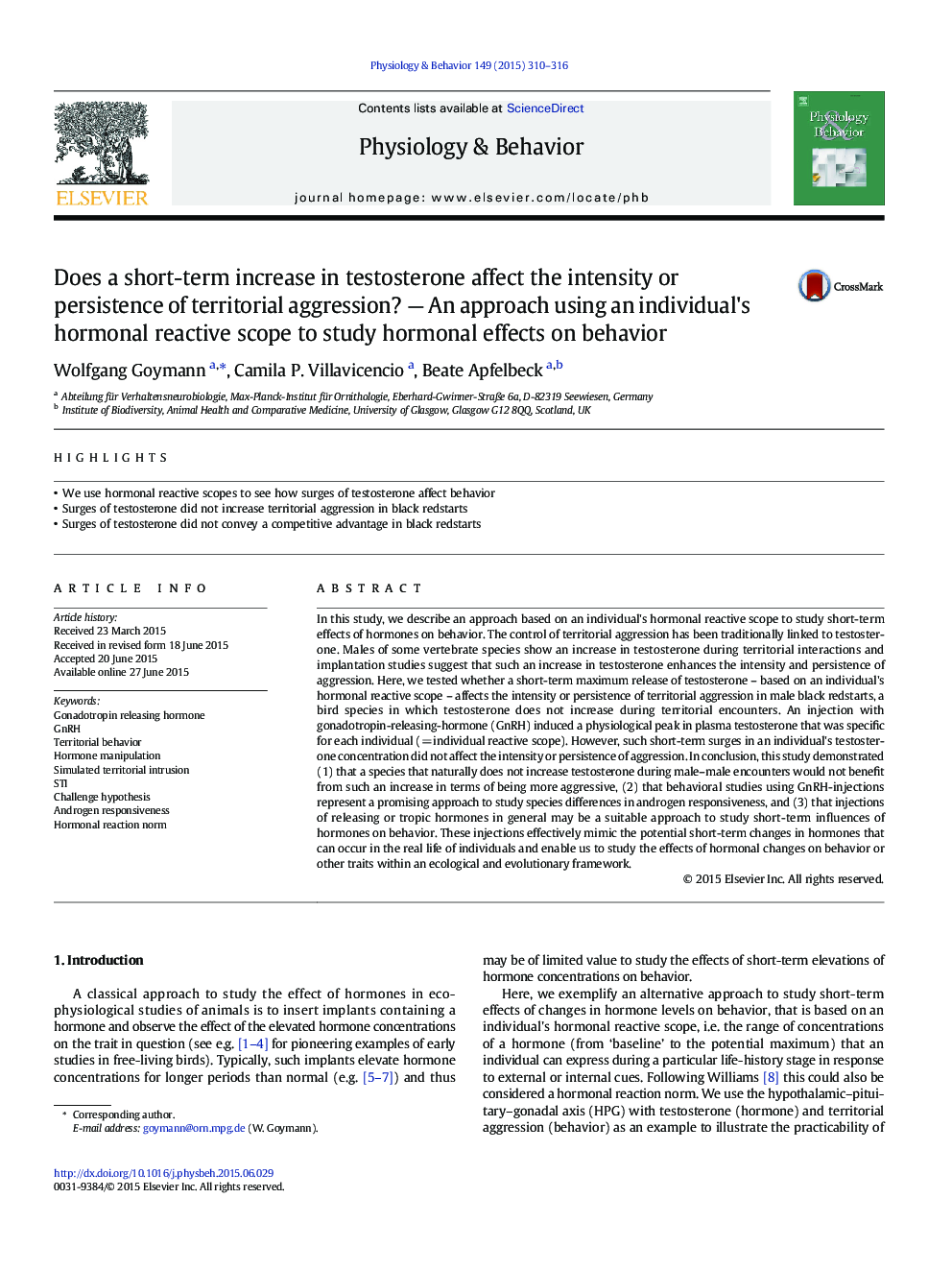| کد مقاله | کد نشریه | سال انتشار | مقاله انگلیسی | نسخه تمام متن |
|---|---|---|---|---|
| 5923606 | 1571168 | 2015 | 7 صفحه PDF | دانلود رایگان |
- We use hormonal reactive scopes to see how surges of testosterone affect behavior
- Surges of testosterone did not increase territorial aggression in black redstarts
- Surges of testosterone did not convey a competitive advantage in black redstarts
In this study, we describe an approach based on an individual's hormonal reactive scope to study short-term effects of hormones on behavior. The control of territorial aggression has been traditionally linked to testosterone. Males of some vertebrate species show an increase in testosterone during territorial interactions and implantation studies suggest that such an increase in testosterone enhances the intensity and persistence of aggression. Here, we tested whether a short-term maximum release of testosterone - based on an individual's hormonal reactive scope - affects the intensity or persistence of territorial aggression in male black redstarts, a bird species in which testosterone does not increase during territorial encounters. An injection with gonadotropin-releasing-hormone (GnRH) induced a physiological peak in plasma testosterone that was specific for each individual (=Â individual reactive scope). However, such short-term surges in an individual's testosterone concentration did not affect the intensity or persistence of aggression. In conclusion, this study demonstrated (1) that a species that naturally does not increase testosterone during male-male encounters would not benefit from such an increase in terms of being more aggressive, (2) that behavioral studies using GnRH-injections represent a promising approach to study species differences in androgen responsiveness, and (3) that injections of releasing or tropic hormones in general may be a suitable approach to study short-term influences of hormones on behavior. These injections effectively mimic the potential short-term changes in hormones that can occur in the real life of individuals and enable us to study the effects of hormonal changes on behavior or other traits within an ecological and evolutionary framework.
Journal: Physiology & Behavior - Volume 149, 1 October 2015, Pages 310-316
